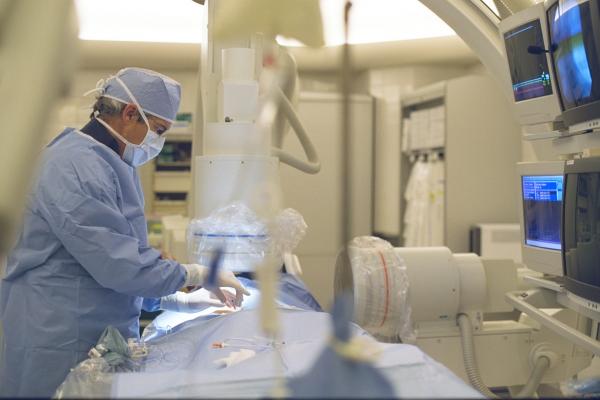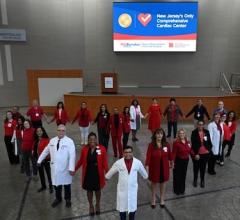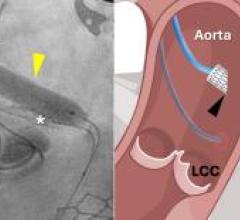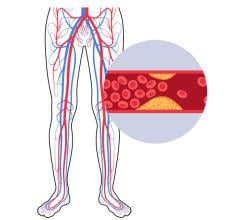
December 4, 2014 – Results from a new study indicate that the addition of mitral valve (MV) repair to coronary artery bypass grafting (CABG) did not result in significant benefit to the patient and was associated with increased risk of neurological events. Therefore, the routine addition of MV repair to CABG in patients with moderate ischemic mitral regurgitation (IMR) did not demonstrate a clinically meaningful advantage.
The Cardiothoracic Surgical Trials Network (CTSN) reported the results from a clinical trial of patients who have a complication of IMR. Study findings were presented at the American Heart Association’s Scientific Sessions 2014 and published simultaneously in the New England Journal of Medicine.
“The results of this study suggest there is little benefit to what is often considered a routine addition to the open-heart procedure of CABG for patients with moderate IMR,” said senior study author Robert Michler, M.D., professor and chairman, department of cardiothoracic and vascular surgery, Montefiore Medical Center and Albert Einstein College of Medicine, and co-director of The Montefiore Einstein Center for Heart and Vascular Care. “Although the one-year data are very compelling, long-term follow-up is necessary to determine whether the lower prevalence of IMR seen at one year will translate into any clinical benefit for patients undergoing mitral valve repair.”
IMR occurs when blood backflows into the left atrium from the left ventricle of the heart due to improper closure of the MV. The condition often develops as a complication of a heart attack and subsequent enlargement of the left ventricle. Functional IMR affects 1.6 million to 2.8 million patients in the United States and is associated with a doubling in mortality among patients with mild or greater degrees of mitral regurgitation after a heart attack. The optimal treatment of IMR remains controversial and unclear.
“We have not had clear evidence for treatment, so recommendations vary greatly from surgeon-to-surgeon, cardiologist-to-cardiologist and institution-to-institution, with perhaps one-third opting for valve repair in addition to CABG,” said Peter K. Smith, M.D., professor and division chief, cardiovascular and thoracic surgery, Duke University School of Medicine, and the study’s primary author. “This study provides some needed clarity, but it’s also important to note we must keep following these patients beyond a year, because their outcomes may change over time.”
The prospective, multi-center, controlled clinical trial randomly assigned 301 patients with moderate IMR to CABG alone or CABG with MV repair. The primary endpoint was left ventricular end systolic volume (LVESVI) at one year, assessed using a Wilcoxon rank sum test categorizing deaths as the lowest LVESVI rank.
One-year mortality was 6.7 percent in CABG/MV repair patients versus 7.3 percent in CABG patients. There were no observed differences in MACCE, death, readmissions, functional status or quality-of-life at one-year.
"There was equivalent and impressive positive remodeling of the left ventricle in both the CABG and CABG-plus-MV repair groups," said study co-author John Puskas, M.D., professor of cardiovascular surgery at Icahn School of Medicine at Mount Sinai and chair of the department of cardiovascular surgery at Mount Sinai Beth Israel who serves on the Steering Committee of CTSN. "The excellent 1-year survival shows that surgical performance by the sites was outstanding adding weight to our findings. Further follow-up and sub-analyses of these patients will help us understand whether the risk-benefit ratio is in favor of mitral valve repair in some of these patients or whether most should have CABG alone."
For more information: www.montefiorehealthsystem.org, www.mountsinai.org/


 February 06, 2026
February 06, 2026 









